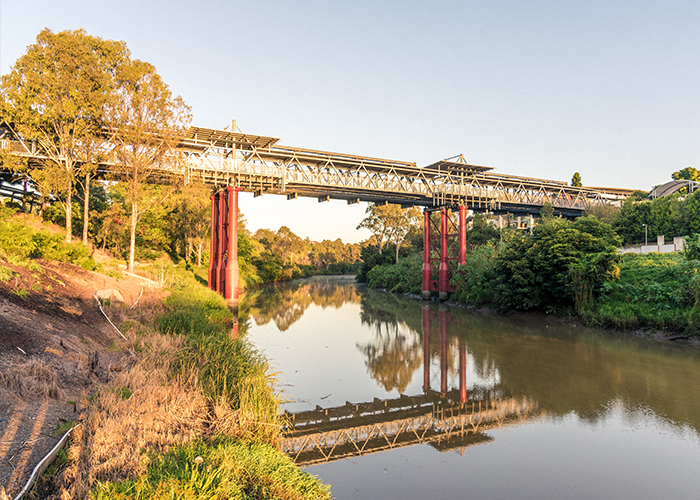Cooper Grace Ward assisted GemLife (ASX:GLF) with its listing on the Australian Stock Exchange. With $750 million in capital raised, the GemLife listing has become Australia’s largest IPO of 2025. ...

The Supreme Court of Queensland decision of Odlin v River Rd Investments Pty Ltd [2023] QSC 182, handed down in August 2023, involved proceedings by a land‑locked property owner seeking permission to proceed with a case that sought to replace an obsolete easement with a new easement granting general access rights.
The case concerned adjoining riverfront commercial properties located in Ipswich owned by the applicant (Mr Odlin) and the respondent (River Rd). Mr Odlin’s land comprised a large undeveloped parcel of land. River Rd’s property was used as an industrial site with a number of tenancies.
There was an easement in favour of Mr Odlin running through River Rd’s property as well as the common property of neighbouring body corporate land. The easement was limited to access to construct coal storage facilities to bring coal onto Mr Odlin’s land, or to transport and distribute coal from his land. Since the easement was granted in 1988, the entire area had been rezoned and Mr Odlin’s land was no longer capable of being used for coal purposes. The easement was therefore obsolete.
In 2022, River Rd leased a portion of its land and undertook works on the property, which included installing a fence over a portion of the easement area.
In 2023, Mr Odlin advised River Rd that he wanted to develop his land and raised issue with access through the existing easement.
River Rd made several offers to meet with Mr Odlin to negotiate a new or modified easement but those offers were refused. Instead, Mr Odlin commenced proceedings in the District Court against River Rd alleging trespass and seeking a number of orders, including that the fence be removed and the easement restored so as to allow access.
River Rd successfully defended the District Court proceedings, arguing the easement was obsolete.
Mr Odlin then commenced proceedings in the Supreme Court seeking permission to amend his case to seek orders under the Property Law Act 1974 (Qld) (PLA) that the easement be modified to allow it to be used for more than coal‑related purpose, or that a new easement be imposed on River Rd’s property.
The new easement that Mr Odlin proposed, described as ‘Proposed Easement X,’ was to be over an entirely different part of the property on terms that involved more expansive access rights. Mr Odlin also sought orders to the effect that River Rd pay for the costs of the easement being amended or imposed, and that River Rd pay Mr Odlin’s costs in the proceedings. Mr Odlin submitted that the proceeding ‘was a very simple matter’ and involved ‘no substantial factual dispute’.
Upon River Rd pointing out to Mr Odlin that any change to the easement would also affect the body corporate, Mr Odlin applied to join the body corporate to the proceedings. He filed an affidavit that stated that he had been advised by members of the body corporate that they consented to being joined to the proceedings and to the orders being made.
The Court dismissed Mr Odlin’s applications and ordered that Mr Odlin pay River Rd’s costs of each application.
Justice Kelly considered the communications that had been exchanged between the parties and made the following findings:
Obtaining a new or modified easement, even where the parties agree that a parcel of land is land-locked and an easement is obsolete, is not necessarily a simple matter.
Seeking court orders imposing new or modified easement arrangements on another party require the applicant to fully address the relevant issues. The required evidence must establish sufficient facts favouring the grant of the relief sought.
In this case, relevant issues that needed to be addressed included:
If you would like further information, please contact Rocco Russo, who acted for the successful party in the proceedings.
This publication is for information only and is not legal advice. You should obtain advice that is specific to your circumstances and not rely on this publication as legal advice. If there are any issues you would like us to advise you on arising from this publication, please let us know.
Subscribe to our interest lists to receive legal alerts, articles, event invitations and offers.


Cooper Grace Ward acknowledges and pays respect to the past, present and future Traditional Custodians and Elders of this nation and the continuation of cultural, spiritual and educational practices of Aboriginal and Torres Strait Islander peoples.
Fast, accurate and flexible entities including companies, self-managed superannuation funds and trusts.